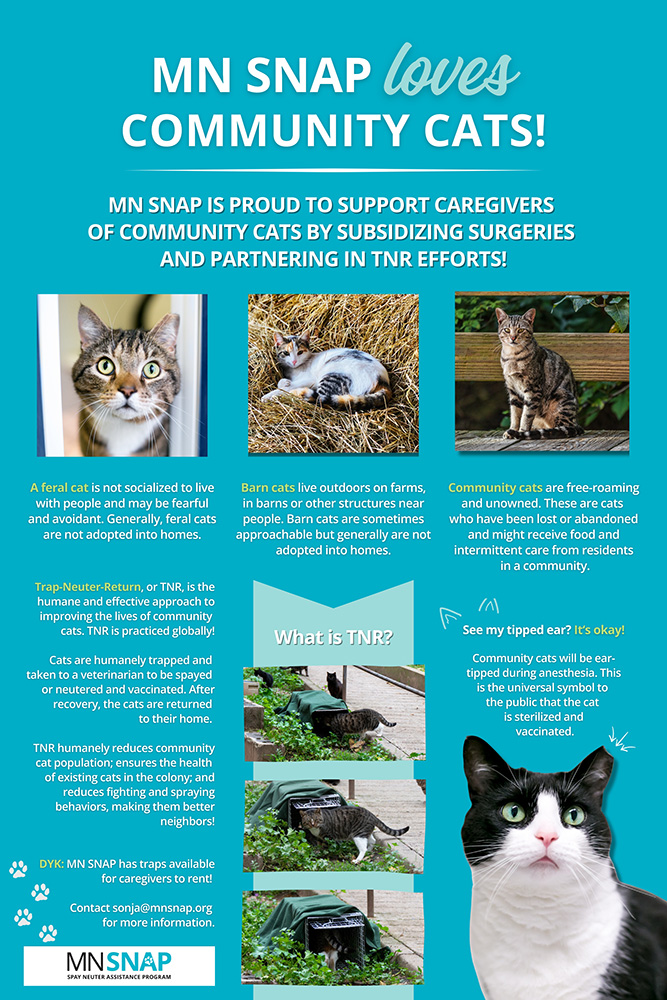MN SNAP subsidizes surgeries for community cats.

Feral cats are not socialized to live with people and may be fearful and avoidant. Generally, feral cats are not adopted into homes.
Low-cost spay and neuter services are available for feral, barn, community or free-roaming cats to caregivers with no income qualifications. These cats are generally not adopted personally or to a third party.
Barn cats live outdoors on farms, in barns or other structures near people. Barn cats are sometimes approachable but not generally adopted into homes.
Community cats are free-roaming and unowned. These are cats who have been lost or abandoned and might receive food and intermittent care from one or more residents in a community.
Feral, barn, community or free-roaming cats are ear-tipped during anesthesia to identify to the public they are sterilized and vaccinated.
Thank you for helping to care for feral cat colonies and working to improve their quality of life and reduce their numbers.
More information on services for community cats:
Feral cats/kittens must meet the following criteria:
Kittens must weigh at least two pounds.
Feral cats must appear healthy, hydrated and eating the day of surgery.
Feral cats must arrive one cat per carrier.
We can safely spay cats that are pregnant or in heat.
Each cat will be ear-tipped — a universal sign that the cat is feral and sterilized.
We request that the caretaker hold the cat for 24 hours post-surgery to monitor recovery.
A pre-surgical physical exam will determine:
Gender
Sterilization status
Weight
Hydration level
Activity level
Body condition
Heart sounds
External parasites
Presence of an umbilical hernia
Obvious signs of disease, such as vomiting, diarrhea, coughing or sneezing
*Patients with skin disease will be evaluated on a case-by-case basis.
Other helpful resources: Alley Cat Allies, Neighborhood Cats
A feral cat neuter is $100, which includes a rabies vaccination.
A feral cat spay is $120, which includes a rabies vaccination.

